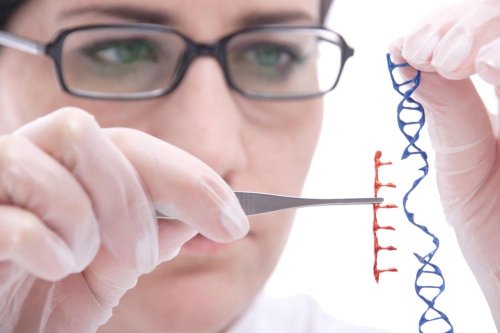University of Florida researchers found a gene therapy that reversed and prevented multiple sclerosis in mice, according to a study published Thursday in the journal Molecular Therapy. Researchers hope to have clinical trials on humans in 3-5 years. Exciting, cutting edge stuff. But take a breath, says one of the lead researchers. “This is done in a mouse model, and we always have to take that with a grain of salt,” he said. I have to agree, as many successful EAE experiments fail in people, but hope always feels so damn good. I'll post more news as it comes out. - D
Gene Therapy-Induced Antigen-Specific Tregs Inhibit Neuro-inflammation and Reverse Disease in a Mouse Model of Multiple Sclerosis
Geoffrey D. Keeler, Sandeep Kumar, Brett Palaschak, Emily L. Silverberg, David M. Markusic, Noah T. Jones, Brad E.
Published Online: September 21, 2017
Publication stage: In Press Corrected Proof
Open Access
DOI: http://dx.doi.org/10.1016/j.ymthe.2017.09.001
The devastating neurodegenerative disease multiple sclerosis (MS) could substantially benefit from an adeno-associated virus (AAV) immunotherapy designed to restore a robust and durable antigen-specific tolerance. However, developing a sufficiently potent and lasting immune-regulatory therapy that can intervene in ongoing disease is a major challenge and has thus been elusive. We addressed this problem by developing a highly effective and robust tolerance-inducing in vivo gene therapy. Using a pre-clinical animal model, we designed a liver-targeting gene transfer vector that expresses full-length myelin oligodendrocyte glycoprotein (MOG) in hepatocytes. We show that by harnessing the tolerogenic nature of the liver, this powerful gene immunotherapy restores immune tolerance by inducing functional MOG-specific regulatory T cells (Tregs) in vivo, independent of major histocompatibility complex (MHC) restrictions. We demonstrate that mice treated prophylactically are protected from developing disease and neurological deficits. More importantly, we demonstrate that when given to mice with preexisting disease, ranging from mild neurological deficits to severe paralysis, the gene immunotherapy abrogated CNS inflammation and significantly reversed clinical symptoms of disease. This specialized approach for inducing antigen-specific immune tolerance has significant therapeutic potential for treating MS and other autoimmune disorders.
FULL STUDY:
http://www.cell.com/molecular-therap...016(17)30413-6

Gene Therapy-Induced Antigen-Specific Tregs Inhibit Neuro-inflammation and Reverse Disease in a Mouse Model of Multiple Sclerosis
Geoffrey D. Keeler, Sandeep Kumar, Brett Palaschak, Emily L. Silverberg, David M. Markusic, Noah T. Jones, Brad E.
Published Online: September 21, 2017
Publication stage: In Press Corrected Proof
Open Access
DOI: http://dx.doi.org/10.1016/j.ymthe.2017.09.001
The devastating neurodegenerative disease multiple sclerosis (MS) could substantially benefit from an adeno-associated virus (AAV) immunotherapy designed to restore a robust and durable antigen-specific tolerance. However, developing a sufficiently potent and lasting immune-regulatory therapy that can intervene in ongoing disease is a major challenge and has thus been elusive. We addressed this problem by developing a highly effective and robust tolerance-inducing in vivo gene therapy. Using a pre-clinical animal model, we designed a liver-targeting gene transfer vector that expresses full-length myelin oligodendrocyte glycoprotein (MOG) in hepatocytes. We show that by harnessing the tolerogenic nature of the liver, this powerful gene immunotherapy restores immune tolerance by inducing functional MOG-specific regulatory T cells (Tregs) in vivo, independent of major histocompatibility complex (MHC) restrictions. We demonstrate that mice treated prophylactically are protected from developing disease and neurological deficits. More importantly, we demonstrate that when given to mice with preexisting disease, ranging from mild neurological deficits to severe paralysis, the gene immunotherapy abrogated CNS inflammation and significantly reversed clinical symptoms of disease. This specialized approach for inducing antigen-specific immune tolerance has significant therapeutic potential for treating MS and other autoimmune disorders.
FULL STUDY:
http://www.cell.com/molecular-therap...016(17)30413-6

Comment